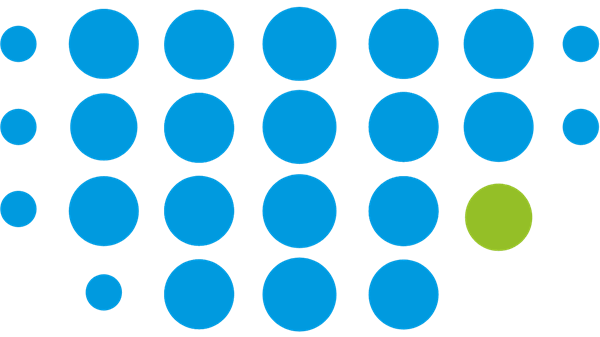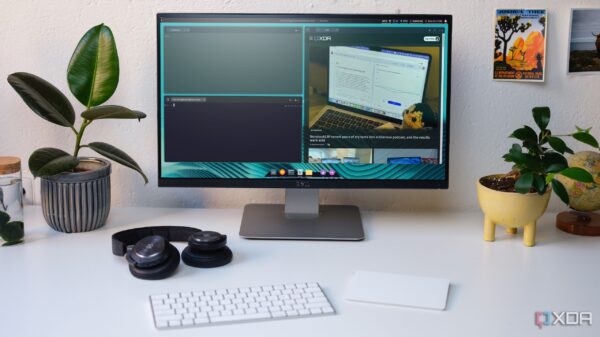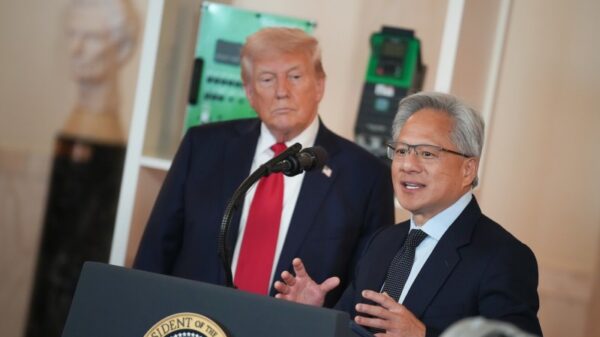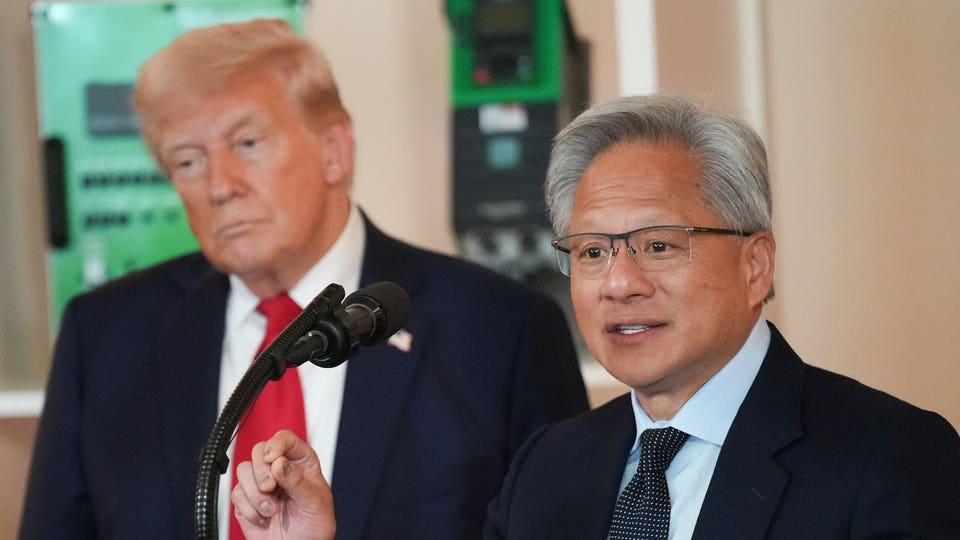UPDATE: President Donald Trump has just confirmed that he will allow Nvidia to engage in deals with China for AI chips, but will strictly prohibit the sale of the company’s most advanced Blackwell chips. This announcement comes during a pivotal 60 Minutes interview that aired on CBS on Sunday night, intensifying the ongoing discourse surrounding semiconductors and international trade.
In the interview, Trump was asked about China’s interest in acquiring the “world’s most advanced semiconductors.” When questioned if Nvidia could sell their leading-edge chips to China, Trump responded firmly: “No, we won’t do that.” However, he indicated a willingness to let Nvidia continue business dealings with Beijing, emphasizing that “the most advanced, we will not let anybody have them other than the United States.”
This declaration has significant implications for the tech industry, particularly as Nvidia’s stock rose 1.4% to $205.31 in premarket trading early on Monday. Just last week, Nvidia became the first company to achieve a market cap exceeding $5 trillion, following Trump’s initial openness to discuss export controls on its advanced chips during a meeting with Chinese President Xi Jinping.
Trump praised the Blackwell chip, calling it “super duper” and stated, “We’ll be speaking about Blackwells,” further asserting that the technology is “probably 10 years ahead of any other chip.” Despite this praise, Trump later clarified to reporters in South Korea that there were no specific discussions regarding Blackwell chips during his meeting with Xi. Instead, he noted that they would address chips in general, with Nvidia serving as a primary player in these discussions.
Nvidia CEO Jensen Huang was also present at the Asia-Pacific Economic Cooperation (APEC) summit, where he expressed hope for future sales of Blackwell chips to China, stating, “I think it’s really good for America and it’s really good for China that Nvidia could participate in the Chinese market.” However, Huang acknowledged that no concrete decisions have been made yet, leaving the final call in Trump’s hands.
During the GPU Technology Conference earlier this week, Huang revealed: “The president has licensed us to ship to China, but China has blocked us from being able to ship to China…They’ve made it very clear that they don’t want Nvidia to be there right now.” The ongoing tug-of-war over semiconductor access represents a critical juncture in U.S.-China relations and the global technology landscape.
In the interview, Trump was queried about whether the export restrictions were motivated by fears that China could outpace the U.S. in AI capabilities. Trump replied, “Well, they wouldn’t win it necessarily, but they would certainly have—an equal advantage.” He highlighted the U.S. current lead in AI, stating, “Right now, we’re winning it because we’re producing electricity like never before.”
As this situation develops, the tech industry and investors will be watching closely for any shifts in policy or negotiations between Nvidia and Chinese officials. The stakes are high, with potential repercussions extending beyond just technology into broader economic relations between the two nations.
Stay tuned for further updates as this story evolves, and share your thoughts on how these export controls could reshape the future of AI technology globally.








































































